Guy Mantzur and Robert Babicz talk collaboration and their favourite gear
Techno producer Guy Mantzur enters the Babiczspaceship for new EP release later this year
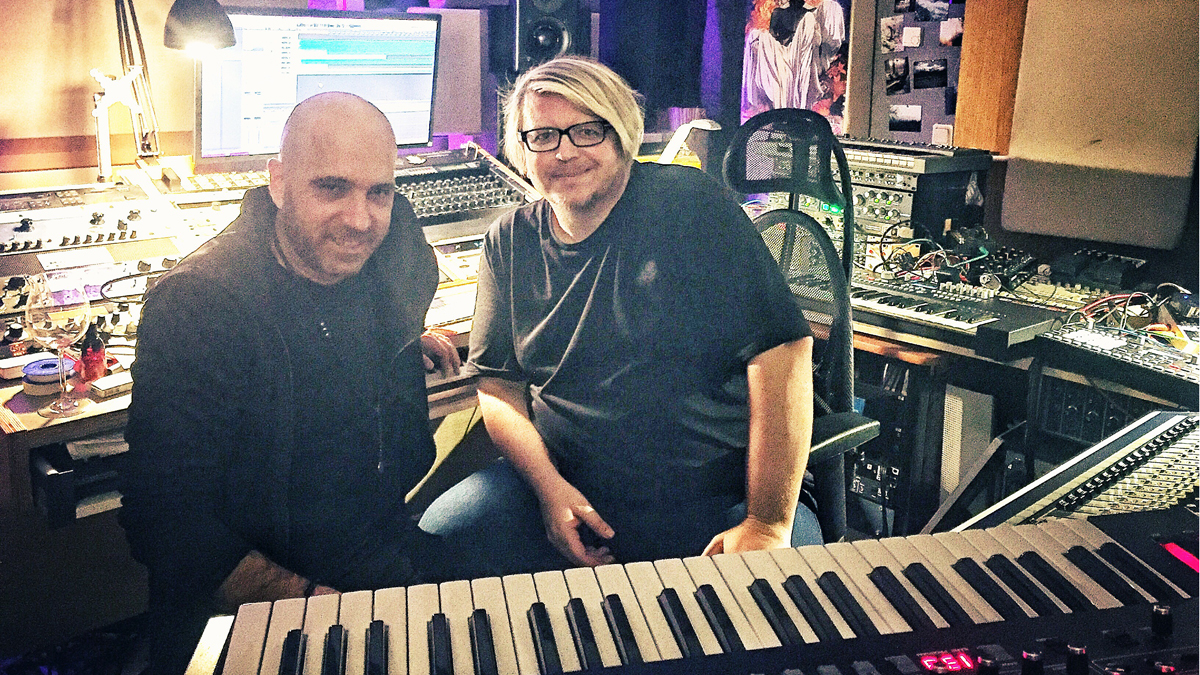
Intro
What happens when two techno icons meet? Well, you can bet it involves plenty of gear and a love of tech...
Tel Aviv-based producer Guy Mantzur has taken audiences to the stars and back for decades with his house and techno productions, while Polish-born Robert Babicz, initially known as Rob Acid, has almost 30 years' experience as a DJ/producer.
With the duo teaming up for an impending EP release, we couldn't resist the opportunity to find out more and test their studio knowledge.
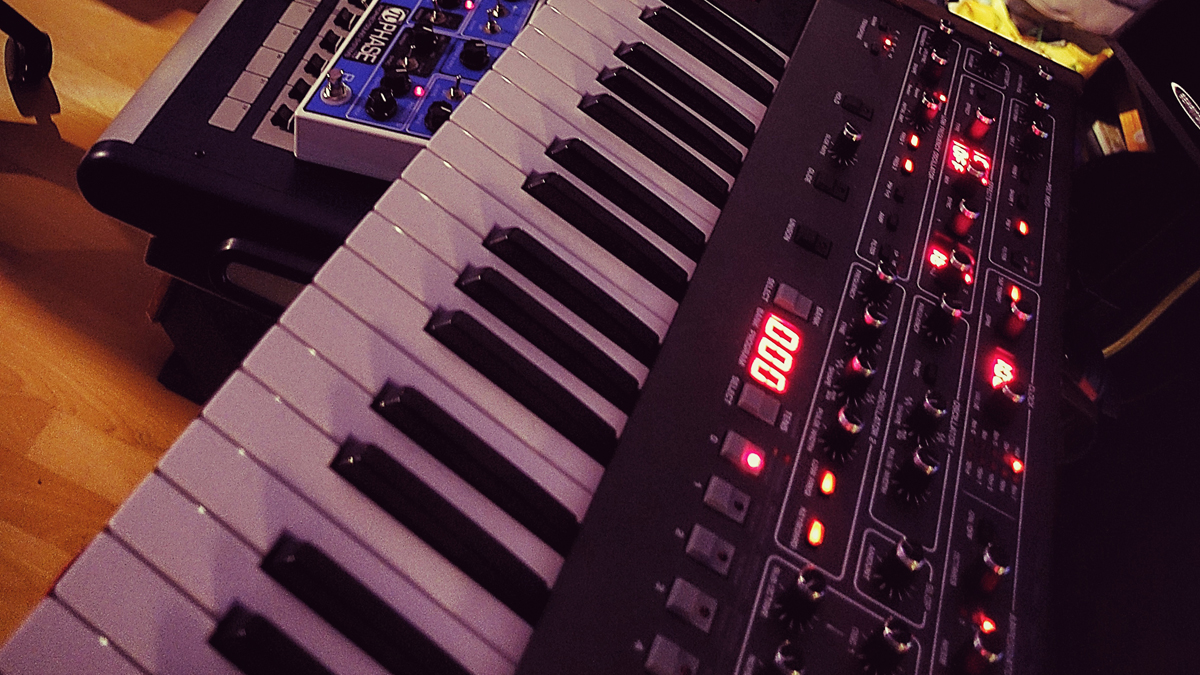
Collaboration
Can you tell us about your performance collaboration this month?
GM: "As every year, Robert is celebrating his birthday at his home town of Koln at Gewölbe club. These parties have become a tradition and he always invites friends and people that he's collaborating with to play. I was honoured to be his guest this year - it will be the first time I've performed in Koln too."
RB: "As well as the show on my birthday, I also spent two days in the studio with Guy at the Babiczspaceship. It was very nice to do both! At the studio, we were able to finish a completely new track together using elements from my new Dave Smith Prophet-6."
GM: "We remixed each other's tracks early last year, but since we decided to do this EP together we've had some great studio sessions in Robert's amazing space."
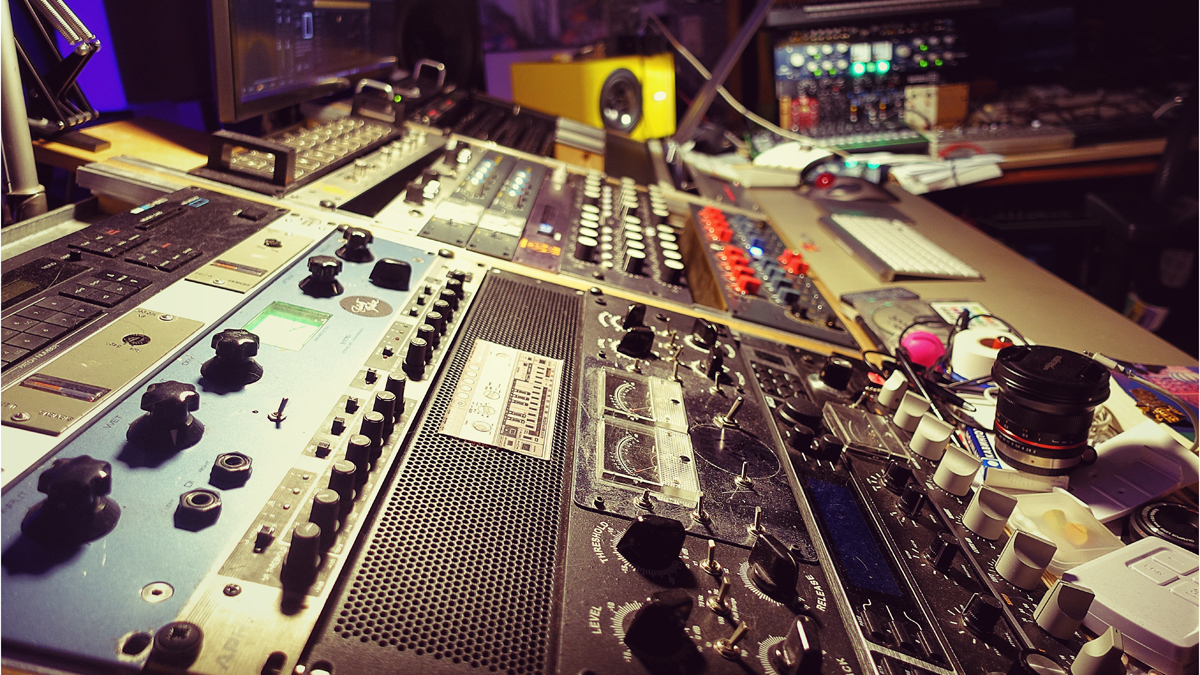
Career in gear
What's your gear history?
GM: "I started making music a long time ago and remember having to record on an analogue tape recorder made by Fostex, which had so much magic back in the day. Being unable to loop or duplicate anything gave the music a really special vibe. These days, my set up is a mixture of analogue and digital equipment.
"When I have an idea for a track, the process often starts with a melody I have in mind on the piano, then I move to the computer or an analogue synth like the Dave Smith Poly Evolver. I find a basic sound that makes the melody shine and take it from there, building it up with bass and grooves."
RB: "I had an Amiga with Soundtracker before moving to a Roland W-30 sampler and Atari with Cubase 1.0. From there I started using the Roland TR-909 and TR3. These days, I have almost everything I ever dreamt of, and more, but I'm still learning. After 28 years, I feel like an advanced beginner."
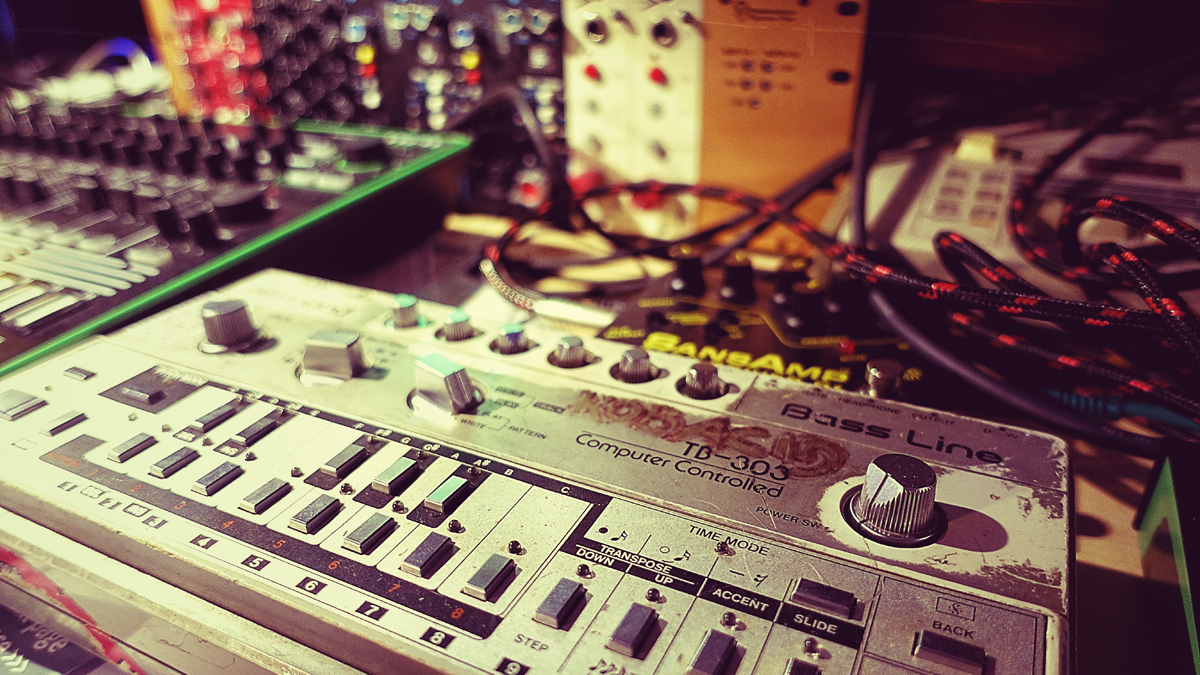
Analogue or digital?
What DAWs are you both using?
GM: "My main software is Cubase, I've been using it for years and I love what it has to offer production wise along with all its EFX edits and EQ capabilities. I use an Apollo 16 soundcard from UAD, which gives me full freedom to use all of my analogue instruments and external EFX at the same time - it's an amazing piece of kit. In terms of software, I have some great VST instruments including Diva, Omnisphere 2 and Native Instruments' Maschine."
RB: "I have two setups here, one based around a Mac Pro with Logic and a lot of outboard compressors and EQs, and the second is an analogue jamming rig with lot of toys including the Elektron Analog Keys, a Roland TB-303, the 909 and an SH-101. I already mentioned the Prophet 6, but I also use a Korg MS-20 with everything running through my Soundcraft analogue desk."
Do you prefer analogue to digital?
GM: "Hardware-wise, I really love analogue gear - nothing can replace it. Apart from the Polly Evolver, I also have a Roland Juno-106, a Moog and the Virus TI. I also have some guitar pedals that I use as external EFX for delay or envelopes. Everything is connected to the UAD soundcard, so this setup gives me the perfect combination of analogue and digital."
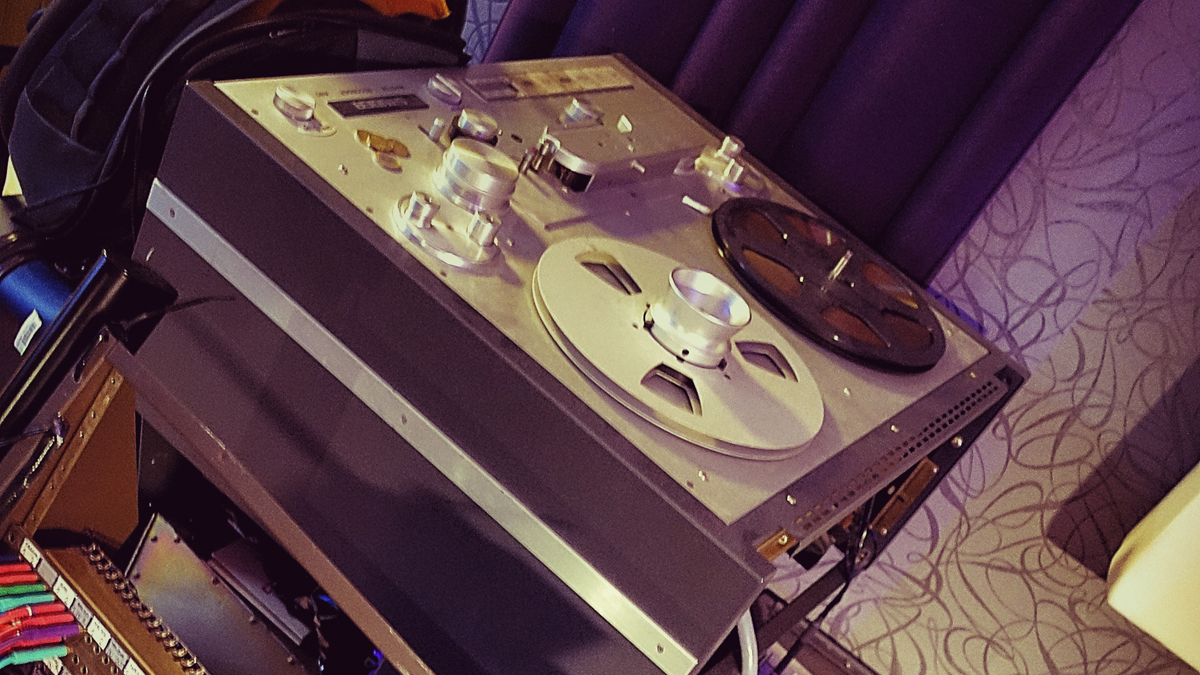
Straight to tape
What's your recording chain?
GM: "I've created my own chain of EFX over the years; it's like a sound signature for me. Everything I put through it immediately makes it sound exactly as I want it to."
RB: "All my music is recorded on my Studer A80 tape machine. I also have some rare, magic outboard stuff like the AKG BX20 reverb, K&H UE100 Tube EQ and a lot of API 500 modules."
Why do you think so many artists are reverting to the use of hardware these days?
GM: "It's a very common question and one that I've also asked myself many times. I really believe that hardware synths have a better sound and feel. Ultimately, music is usually built from feelings. If you think of piano players, they are hearing the music and touching the piano - touching the instrument, feeling it. Pushing the buttons sometimes gives your creativity another dimension that is missing when you don't have any gear to play with."
RB: "I don't think you can abuse software instruments - they always do what they're meant to do. With analogue technology, you can open stuff and change parts or do crazy things, like recording through strange combinations of gear and trying to find new ways of creating sound."
GM: "I agree. Software doesn't sound quite as good as hardware. Touching the instrument can take your mind into different dimensions of creativity when you really need to."
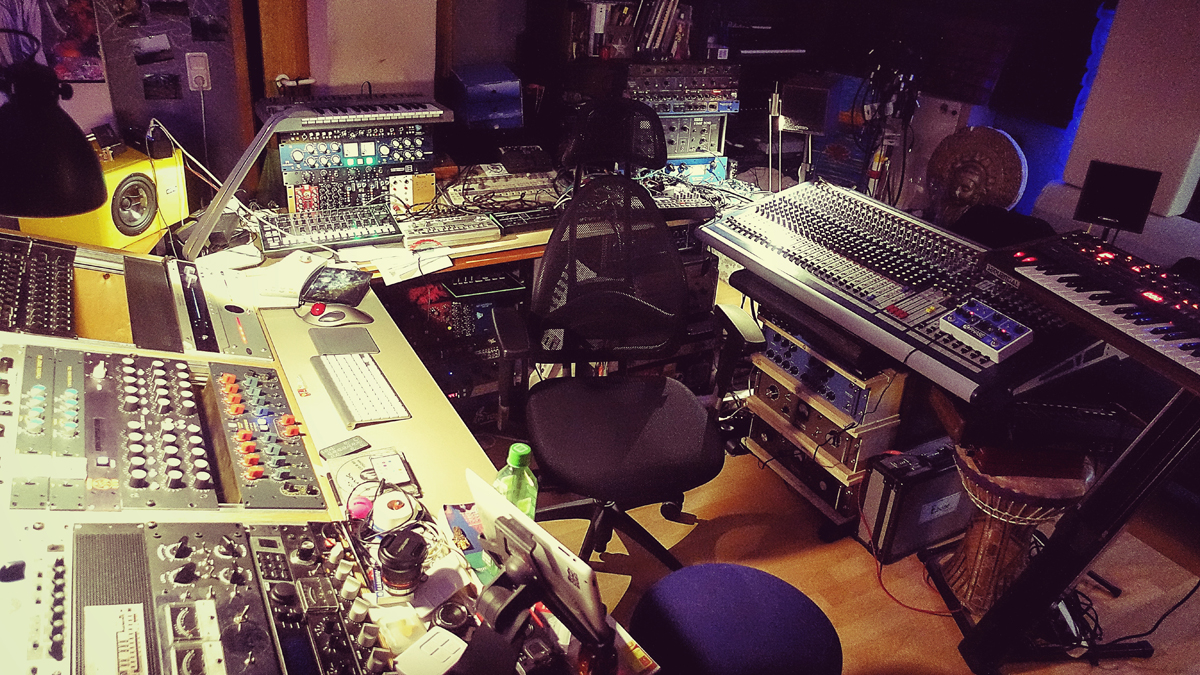
Modular gear
What about modular synthesis, which seems to be particularly appealing to musicians these days?
GM: "In general, I can understand the love for modular synthesis from the producer's side. From my side, I'm not using it too much, just once in a while. Still, I think that the modular synth can really help you put your inner self into the sound.
"The fact that it has so many options and you can change every sound to something completely different means that, in this era of production where a lot of people have got the same equipment, modular can help you sound special and unique."
RB: "I find it very cool how the modular world is getting so big. It's great to see people experimenting again, but at the same time most of the stuff I hear coming out of that I can do in my studio already. But software modular systems like Reaktor are really good."
Do you have any favourite bits of modular kit yourselves?
GM: "I've used a Cwejman a few times and I think it's a top modular synth. You can start working on a sound and take it in a totally different direction, and sometimes you don't even know what the result might be. The good part about modular is that you can freely connect everything to everything."
RB: "I had a KYMA system before, that was very unique in sound and handling - I miss it! But when you work with modular it can be dangerous if you get lost in its features. The most important aspect of gear is that it's just a tool to help you make music and realise your dreams. Just making sounds because you can is boring."
GM: "From my side, I sometimes find it boring to only use software, even though I know lots of great producers who do that successfully."
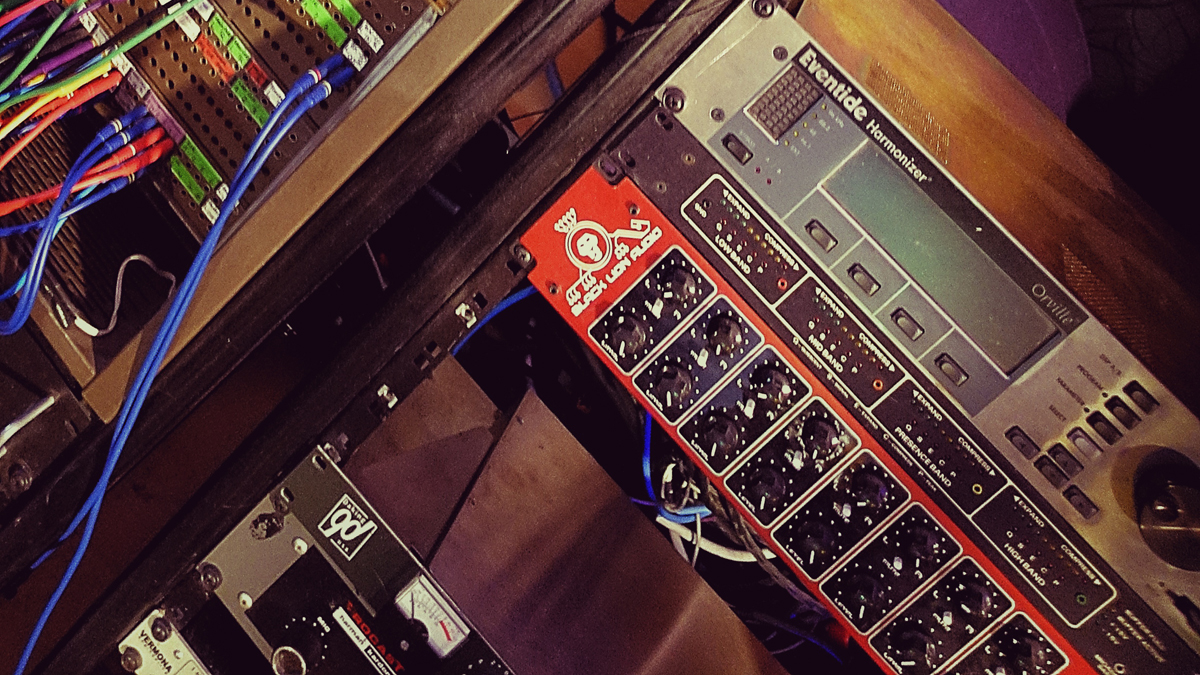
Forthcoming releases
Is it important for studio and live technologies to become co-dependent?
GM: "It looks like this is where the music's going too. Today, DJs and live acts are bringing their studio sounds into their performances more often. There is the new STEMS initiative by Native Instruments, which is probably the best example. You can turn your own track into separate audio channels and play them as a kind of live show without setting anything else up separately. Most live bands these days use loops and pre-recorded samples made in their studio and played using Ableton Live or similar."
Do you have any solo releases planned?
GM: "I did a remix with Roy RosenfelD of the old-time classic Let Me Take You by Van Bellen, which is out on Marc Romboy's Systematic Recordings. I'm also about to release a new track, Trees of Eden, on Diynamic towards the end of January as part of a four-track package, and I have a compilation album out early February."
RB: "We want to release something together, but I'm also doing a lot of my own music. I've created a new label especially for pure analogue music made without computers, it's called Dirtcuts."
The new Robert Babicz compilation 'Four to the Flour 06' is released 5th February on Diynamic. For more information, check out Robert'sFacebook,Twitter, andSound Cloudpages. Guy Mantzur can also be found onFacebook,Twitter, andSound Cloud.

